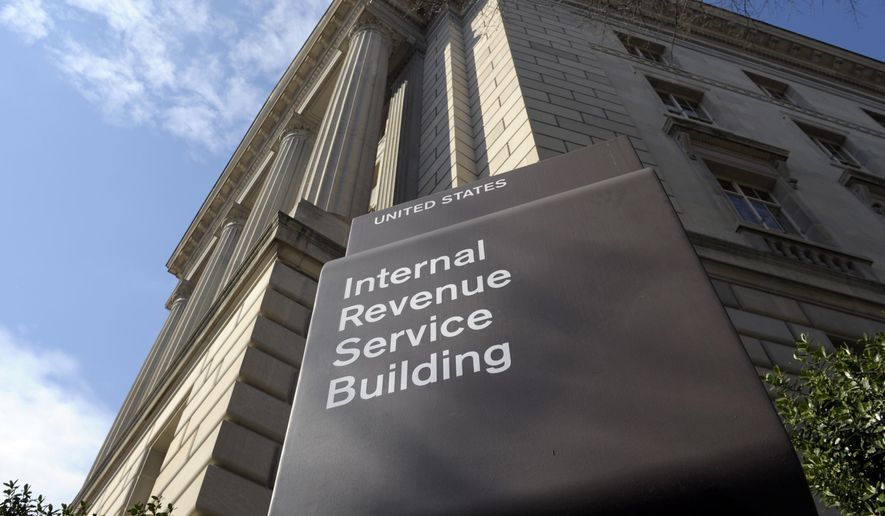WASHINGTON (AP) - Under sharp questioning from some Democratic senators, President Donald Trump’s choice to head the IRS promised on Thursday to work for the benefit of ordinary taxpayers in administering the massive new tax law.
Charles Rettig is a Beverly Hills tax lawyer who has represented thousands of individuals and companies in civil and criminal tax matters before the agency and against it in court. He also defended Trump’s decision to break with tradition by refusing to release his personal tax filings during the 2016 presidential campaign.
At his confirmation hearing by the tax-writing Senate Finance Committee, Rettig was asked whether, given his experience representing wealthy individuals in tax-avoidance cases, he would work for ordinary taxpayers.
“I have seen the difficulties faced by taxpayers of all kinds,” Rettig said. “I will work … to take on challenges with the impact on taxpayers in mind.”
Retting, if confirmed by the Senate as Internal Revenue Service commissioner, will face a colossal challenge in administering and enforcing the new law, the most sweeping overhaul of the U.S. tax code in 30 years. The complex, $1.5 trillion package was muscled through Congress by the majority Republicans late last year with Democrats unanimously voting against it.
The new law, Trump’s signature legislative achievement, provides generous tax cuts for corporations and the wealthiest Americans, and more modest reductions for middle- and low-income individuals and families. Starting early this year, millions of working Americans saw increases in their paychecks with less tax withheld.
Rettig, 61, has worked at his Beverly Hills, California, law firm, Hochman, Salkin, Rettig, Toscher & Perez, for more than 35 years.
His clients have included affluent taxpayers seeking to strike deals with the IRS to turn over information on offshore bank accounts in exchange for reduced penalties. He has sued the IRS on behalf of clients seeking to reduce their tax penalties, and chaired the IRS advisory council, which acts as a public forum for discussing tax issues with agency officials.
Rettig also pledged at the hearing to uphold the political independence of the IRS. He had defended Trump’s refusal to release his tax returns, writing that Trump was facing the IRS “Wealth Squad.” Trump has accused the IRS of unfairly harassing him with audits and cited the IRS’ ongoing audit of his returns as the reason for his refusal.
“Mr. Rettig … needs to demonstrate that he will maintain independence from the Trump White House,” said Sen. Ron Wyden of Oregon, the committee’s senior Democrat.
Rettig said he expects that taxpayers “will see me as staunchly independent or more so.”
The quality of service provided by the agency for taxpayers is a primary issue. Rettig would take over an agency that has been pummeled for years by Republican lawmakers and has seen its funding slashed by 20 percent since 2010. His vetting comes as the independent IRS watchdog warned Congress in a report that funding cuts have eroded the agency’s ability to provide high-quality service to taxpayers and to upgrade its aging technology.
“Some of the IRS’ information technology dates back to the Kennedy administration,” said the Finance Committee chairman, Sen. Orrin Hatch, R-Utah. “I expect Mr. Rettig to work with Congress to modernize the IRS’ infrastructure and technology to bring the agency into the 21st century.”
Rettig acknowledged that long waits on the phone for taxpayers seeking information from the agency and outdated technology “are significant sources of frustration.”
“The American taxpayers deserve the most up-to-date IT system on the planet,” he said, and upgrading the system would be one of his top goals.
The tax-filing season earlier this year for 2017, the last one under the “old” tax regime, went well, officials said.
But on April 17, the filing deadline, the bottom fell out. Key elements of the IRS computer system crashed, bringing an unwelcome surprise for taxpayers who had waited until the final day to file online. The website for making payments and gaining access to other key services was down due to what officials later described as a “high-volume technical issue.” It came back online late that day, and affected taxpayers got an extra day to file.




Please read our comment policy before commenting.